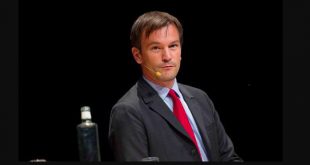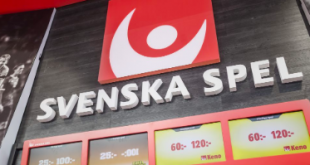Closing November, the Swedish government announced the launch of ‘Larsson Inquiry’ to review Sweden’s online gambling’s safeguards against the growing threat of black market actors.
Though welcomed by all market stakeholders, Regulus Partners states that Swedish igaming incumbents must provide better arguments on market threats beyond economic constraints or a repeat of poor outcomes will simply follow the inquiry.
_______________
Gunnar Larsson, the Director-General of the Swedish Chamber of Commerce, has been given the task of “identifying obstacles and proposing solutions to enable more effective supervision of illegal gambling”. As well as the perennial issue of match-fixing, the review will consider customer exposure to ‘illegal’ gambling, the impact of ‘unfair competition’ and the efficacy of enforcement measures that may be available.
The biggest issue is undoubtedly the one the gambling regulator has flagged which led to the formal investigation: offshore gambling in Sweden currently isn’t all that illegal. In plugging this obvious, self-fulfilling, and undoubtedly growing hole, the Swedish government has a choice between doubling down on restrictions or finding a balance.
The problem with the latter course (which is by far the most beneficial to Swedish consumers as well as the Swedish government and domestically licensed operators) is that a critical mass of operators still seem to be aiming for their feet (NB, while far from saintly, the former monopolies and PAF tend to tread a far more careful SR path, have a much better ‘in’ with government and a more subtle relationship with competition).
The Larsson Commission does not seem to be set up to do what some stakeholders hope: mark the government’s homework on channelling; though this may (and probably should) be a consequence of a robust and effective investigation. At the moment, the mandate seems to be narrower:
- is there a leakage problem in theory?
- to what extent is there a leakage problem in practice?
- what can be done about it?
The answer to the first question is an obvious and emphatic yes: any prevarication over this would be obtuse, in our view. Regardless of the restrictions that might be placed on Swedish licensees (see below), the fact that it is not illegal to accept wagers from Swedish players so long as they are not ‘targeted’ is a gaping hole in an advanced market. All a Swedish player needs is access to Google (other search engines are available) and a reasonable command of the English language (or indeed just a second language): so that is well over 50% of adults. The theoretical leakage problem is huge.
The extent of the practical leakage problem is a function of the extent to which Swedish players are incentivised to go looking for suppliers which are not domestically licensed. This was built into the 2019 regulation: Swedish gamblers have grown up on customer incentives and many are adept at seeking them out (hence the large pool of multi-brand Nordic operators targeting Sweden). To put this into context, while Swedish marketing and advertising costs hit c. €500m in 2018, incentives were running at c. €4-500m: incentives therefore represented more than half of most .com gambling provider’s direct customer acquisition and retention efforts (the monopolies over-index in advertising, with heavily restricted incentives prior to regulation).
Post regulation, this has been cut dramatically to one sign-on bonus only; post Covid-19 response this can be a mere €10 for casino. Google suddenly becomes a very useful tool for incentive-driven gamblers (most of SE online revenue by recent history). This willingness to seek out offshore supply has been further compounded by €480 weekly casino limits: this might only impact less than 5% of customers (RP estimate), but it is likely to capture over 30% of casino revenue (historically 56% of mix, including ATG’s horseracing footprint).
We therefore have a clear motive, means and opportunity. Scaling the impact is more problematic and anyone who claims a clear view of the problem is overstating the strength of the evidence. However, there are very clear pointers that can allow a reasonable level of triangulation:
- Search engine enquiries and consumer surveys are pointing to increasing .com casino traffic from a relatively high base
- SE online casino in 2019 (pre-pandemic and additional restrictions) NGR fell by 22% (RP estimates) and while a large proportion of this will be tough comps from over-trading pre-regulation, we would be surprised if at least c. 50% of this (€70m – NGR, likely double GGR) wasn’t seeding the .com market (suggesting 2019 channelling at the NGR level of 92% overall, including a much smaller level of betting leakage; c. 88% for casino only)
- SE online casino fell c. 5% overall at the GGR level in Q3 vs. -2% in DK and normalising to flat in GB; this suggests only c. €10m of lost revenue, but betting was up by more than this
- Because most European regulators and commentators tend to focus on GGR, there is a tendency to (significantly) overstate the underlying size of ‘black’ markets, especially if the bonusing in the domestically regulated markets is restricted and/or taxed (as is the case in SE): the amount customers actually spend should be what matters, not the amount of free money they are given (which effectively means GGR is an outcome of marketing, not an input of customer engagement)
The extent to which further restrictions are growing the SE .com market is therefore very difficult to establish, but there is a clear hypothesis for growth from a reasonably high base.
The natural government response to this is to make a ‘grey’ market ‘black’ (i.e., change its legal status) and then use the usual array of enforcement measures (payments blocking, ISP blocking etc, tougher operator sanctions etc). These work to a larger extent than some .com operators like to claim, but their main effect is to stop less dedicated gamblers from enjoying their hobby, while driving more dedicated gamblers to perforce non-compliant operators, who are therefore unlikely to be leading the pack in social responsibility measures.
Restriction and enforcement therefore tend to push a problem out of sight (and realistic enforcement and tax), while impairing consumer utility. This complete failure of underlying government intentions can be dressed up as success, however, because the visible revenue goes down.
The online industry faces two major problems in getting this message across. The first is that cause and effect is nuanced: crying wolf over an immediate black-market impact looks implausible and so can be dismissed (overall SE online domestically regulated revenue went up in Q3: see WPs passim). The second is that the erstwhile .com industry will be making these arguments at a time when the Swedish Consumer Agency found the usual grubby cast of withdrawal restrictions, unclear T&Cs and dodgy disclaimers in a review of 13 (18%) licensees.
If a critical mass of domestically licensed operators continue to see the world in terms of maximising revenue rather than optimising sustainability (or just doing the right thing because it is the right thing to do), then a weak lobbying voice leading to poor regulatory outcomes is all that can be expected.
___________________________
Article edited by SBC from ‘Winning Post’ Sunday 06 December 2020 (click on the below logo to access a full unedited version)










